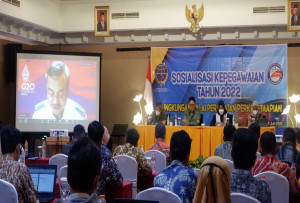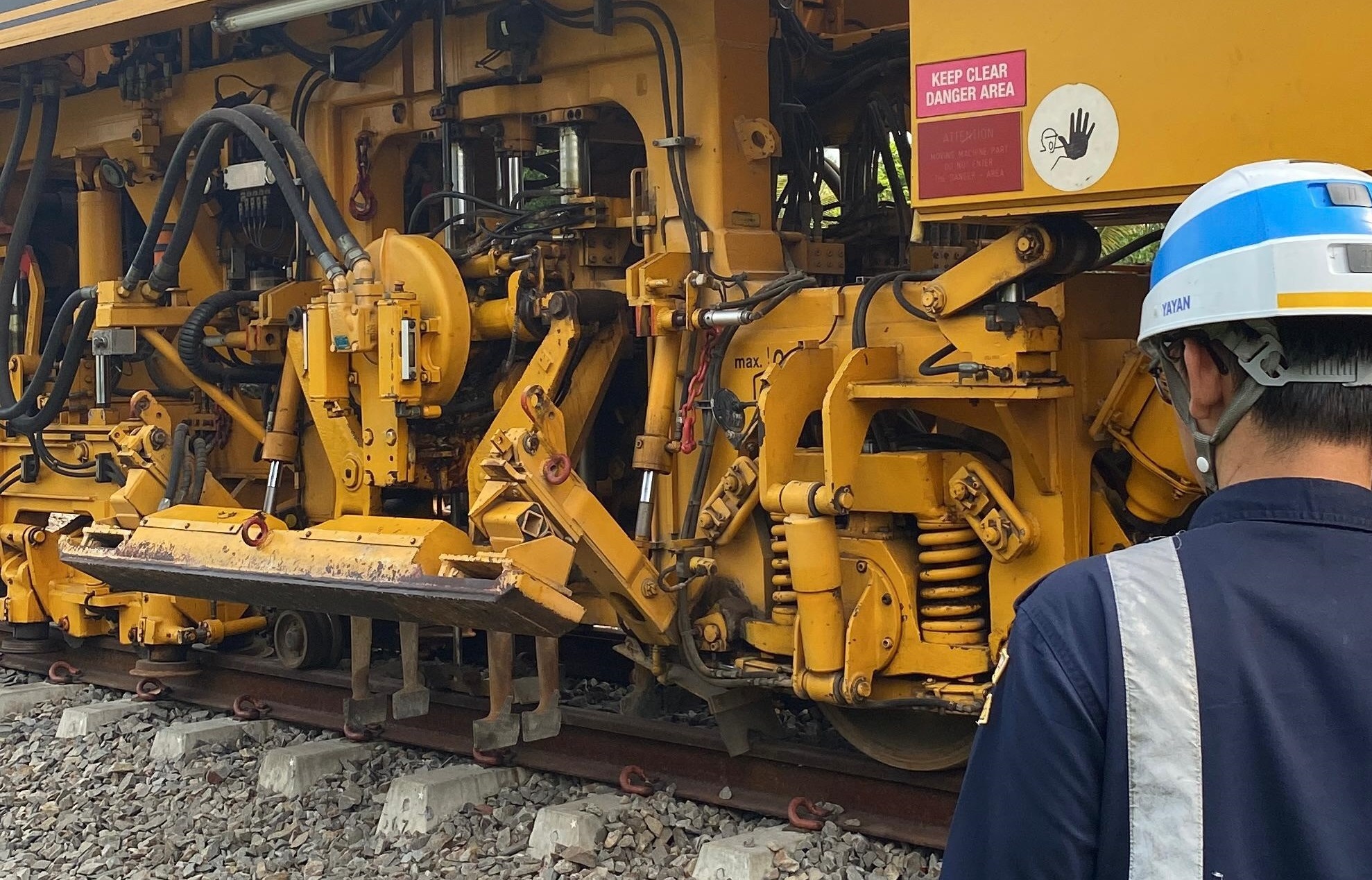Structuring non-ASN personnel, Kemenpan RB: PPPK Policy Based on ASN Demographic Data

Surakarta – The arrangement of non-state civil servants or non-ASN personnel within government agencies is part of a strategic step to build more professional ASN human resources. This was done as an effort to implement the mandate of Law Number 5 of 2014 concerning ASN and Government Regulation Number 11 of 2017 concerning Management of Civil Servants.
As a step in implementing the personnel policy, the Railway Maintenance Center or Baperka initiated a socialization agenda. The event takes place offline as well as online. The program can be followed by all employees of the Directorate General of Railways via the zoom link for the staffing discussion at the Adhiwangsa Hotel, Surakarta, Monday (27/6/2022).
The discussion agenda presented speakers directly from the Ministry of State Apparatus Empowerment and Bureaucratic Reform (Kemen PANRB), and was opened by the Head of the Railway Maintenance Center, M Andi Hary Murty. At the beginning of the event, participants listened to directions from the Secretary of the Directorate General of Railways, represented by the Head of the Civil Service and General Affairs Division of the Directorate General of Railways, Syafek Jamhari.
Having the opportunity to open the event, the Head of the Railway Maintenance Center conveyed his commitment to obey and comply with regulations by calculating the need for PPPK positions and various other strategic efforts. "We hope that the efforts that have been made so far are in line with what is expected by the PANRB Ministry as the leading sector in the field of staffing," said Andi Hary Murty.
In his direction in the context of structuring non-ASN personnel, the Secretary General of Railways emphasized how management in the field of personnel needs to pay attention to the equitable distribution system for the state civil apparatus (ASN) which is in line with the spirit of ASN arrangement.
Meanwhile, during the presentation of the material, Kemen PANRB speaker Suryo Hidayat, revealed the demographic condition of ASN in the current situation, which is said to be contrary to the government's efforts to build an electronic-based government system. "Seeing the processed ASN demographic data, the current number of ASNs is in a counterproductive position with the development of an electronic-based government system in the future," explained Suryo.
For this reason, the arrangement of Non-ASN personnel in various government agencies needs to be carried out with a strategy according to the character of each agency. The Ministry of PANRB provides an opportunity for Government agency Personnel Development Officers (PPK) to determine the employment status of non-ASN employees (non-PNS, non-PPPK, and ex-Honorary Personnel) no later than 28 November 2023. This is stated in the PANRB Minister's letter No. . B/185/M.SM.02.03/2022 dated May 31, 2022, regarding Employment Status in Central Government Agencies and Regional Governments.
The settlement of non-ASN employees (non-PNS, non-PPPK, and ex-Honorary Personnel) is a mandate from Law Number 5 of 2014 concerning ASN. Article 96 paragraph (1) of the Government Regulation Number 49 of 2018 concerning the Management of PPPK also states that non-ASN employees serving in government agencies can be appointed as PPPK if they meet the requirements, within a maximum period of five years from the promulgation of the PP.
PP No. 49 of 2018 was promulgated on November 28 2018, so the five-year implementation falls on November 28, 2023 which mandates that employment status in government agencies consists of two types, namely PNS and PPPK.
The main thing that is expected is that the Personnel Guidance Officer (PPK) is asked to draw up strategic steps for resolving non-ASN employees who do not meet the requirements or do not pass the selection of Candidates for Civil Servants and Government Employees with Work Agreements (PPPK) in accordance with the provisions of the legislation before the deadline. set for 2023.
The flow of settlement of non-ASN employees in these positions, if needed, can be done through outsourcing by a third party in the specified position, and other strategic steps that need to be taken so that in 2023 the ASN arrangement can be completed while still complying with the government regulations stipulated .
It should be noted that personnel management must comply with applicable regulations. So it is important, in terms of filling ASN positions, each agency needs to pay attention to the provisions of PP Number 49 of 2018 in Article 99 which states that there is a prohibition on appointing non-PNS and non-PPPK personnel to fill ASN positions.
The discussion agenda went smoothly and continued to apply health protocols in an orderly manner. The dialogue runs dynamically, online participants who take part in the zoom room can also ask questions to the speakers in real time.
The discussion agenda consists of two agenda days. The discussion on the arrangement of non-ASN personnel took place on the first day. On the second day, the discussion was carried out with two main topics of discussion, firstly about evaluating the performance of civil servants in accordance with the Regulation of the Minister of State Apparatus Empowerment and Bureaucratic Reform Number 6 of 2022 concerning Management of the Performance of State Civil Apparatus Employees, and secondly, material on the enforcement of disciplinary sanctions for civil servants based on Government Regulation Number 94 of 2021 concerning Civil Servant Discipline. (yogo)



.jpg)

Komentar
LOGIN FOR COMMENT Sign in with Google